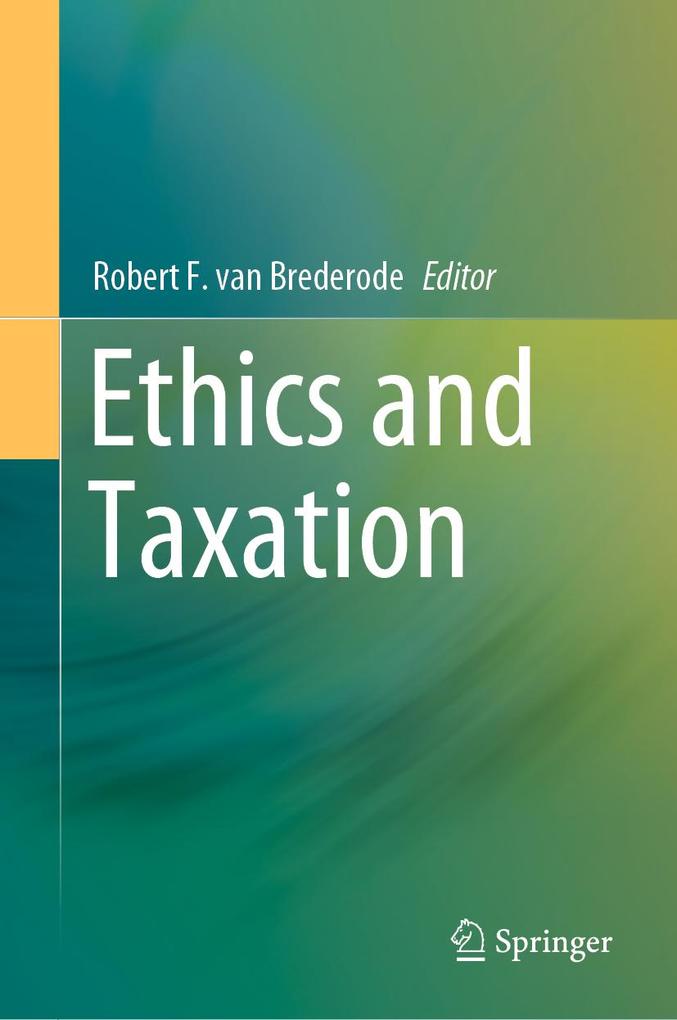
Sofort lieferbar (Download)
This book does not present a single philosophical approach to taxation and ethics, but instead demonstrates the divergence in opinions and approaches using a framework consisting of three broad categories: tax policy and design of tax law; ethical standards for tax advisors and taxpayers; and tax law enforcement.
In turn, the book addresses a number of moral questions in connection with taxes, concerning such topics as:
. the nature of government . the relation between government (the state) and its subjects or citizens . the moral justification of taxes. the link between property and taxation. tax planning, evasion and avoidance . corporate social responsibility. the use of coercive power in collecting taxes and enforcing tax laws . ethical standards for tax advisors . tax payer rights . the balance between individual rights to liberty and privacy, and government compliance and information requirements . the moral justification underlying the efforts of legislators and policymakers to restructure society and steer individual and corporate behavior.
In turn, the book addresses a number of moral questions in connection with taxes, concerning such topics as:
. the nature of government . the relation between government (the state) and its subjects or citizens . the moral justification of taxes. the link between property and taxation. tax planning, evasion and avoidance . corporate social responsibility. the use of coercive power in collecting taxes and enforcing tax laws . ethical standards for tax advisors . tax payer rights . the balance between individual rights to liberty and privacy, and government compliance and information requirements . the moral justification underlying the efforts of legislators and policymakers to restructure society and steer individual and corporate behavior.
Inhaltsverzeichnis
Chapter 1: Introduction.- Chapter 2: The Concept of Ethics and Morality and Its Development in Public Opinion.- Chapter 3: Moral Basis of Taxation.- Chapter 4: Libertarian Perspectives on the Justification of Taxation.- Chapter 5: Judeo-Christian Perspectives on Taxation.- Chapter 6: Developing Moral Standards for Taxation.- Chapter 7: Global Tax Justice.- Chapter 8: Ethics in Tax Treaty Interpretation: On the Role of the Competent Authority.- Chapter 9: Social Contracts and Ethics.- Chapter 10: Moral Limitations to the Burden of Tax Compliance.- Chapter 11: Ethical Standards for Corporations.- Chapter 12: Considerations for an Ethical Relationship between Tax Advisors and Revenue Agents.- Chapter 13: A Comparative Study of Taxpayer Rights and Protections in a Digital Global Environment .- Chapter 14: International Human Rights and Abuse of Law.- Chapter 15: Taxpayer Perceptions of Tax Avoidance and Evasion.- Chapter 16: Executive and Judicial Branch Responses to Tax Evasion and Avoidance in the EU.- Chapter 17: EU State Aid Investigations and the Principle of Legal Certainty.- Chapter 18: Taxpayer Privacy and Cross-border Tax Information Exchange.- Chapter 19: Are Blacklisting and Public Shaming Ethically Acceptable Enforcement Tools?.- Chapter 20: Fairness Considerations in Judicial Decision-making Processes.
Produktdetails
Erscheinungsdatum
02. November 2019
Sprache
englisch
Auflage
1st ed. 2020
Seitenanzahl
412
Dateigröße
4,26 MB
Herausgegeben von
Robert F. van Brederode
Verlag/Hersteller
Kopierschutz
mit Wasserzeichen versehen
Produktart
EBOOK
Dateiformat
PDF
ISBN
9789811500893
Entdecken Sie mehr
Pressestimmen
By bringing together ideas that have disparate origins but a common connection through taxation, as well as esteemed authors with different experiences and perspectives, this book provides another valuable contribution to an area of study which in recent years is seeing renewed interest. The world is rendered a better place through considered debates and this book is bursting with dialecticism, leading readers to refine, reflect upon and better their understandings of tax. (Stephen Daly,British Tax Review, Issue 3, 2020)
Bewertungen
0 Bewertungen
Es wurden noch keine Bewertungen abgegeben. Schreiben Sie die erste Bewertung zu "Ethics and Taxation" und helfen Sie damit anderen bei der Kaufentscheidung.









